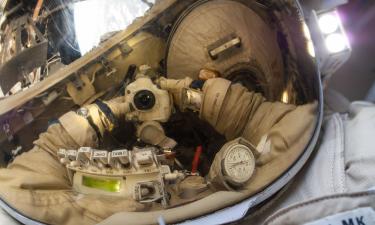Ingush cul-de-suc. The Kremlin tested new election strategy
April 29, the district election committee summed up results of 2nd round of the voting in the presidential election in Ingushetia. According to the preliminary results, the victory was won by the President’s deputy plenipotentiary to the South Federal District, FSB general Murat Zyazikov. He got 52 percent of votes (of 46 thousands people who participated in the election). His opponent, State Duma deputy Alikhan Amirkhanov got 44 percent, or 39 thousand votes. While 3 percent of electorate voted “against all candidates.” Totally, 65 percent of voters participated in the second round, which is by 2 percent less than in the first round. At first sight, the results of the election are unexpected both for Ingush electorate and for Murat Zyazikov himself. It should be reminded that in the first round, Zyazikov got only 19 percent of votes, while his opponent Alikhan Amirkhanov got 31.5 percent. The Ingush election hardly could be called “scandalous,” because they were not seriously covered by mass media. Two or three editions, like Kommersant, Novaya Gazeta, Politcom.ru in some degree reflected circumstances of the pre-election fight. Though, it was in the centre, while on the spots, correspondents were chased by workers of the plenipotentiary office, who seriously occupied themselves with the election. To aggravate pressure upon the electorate, a special group of FSB workers came from Moscow. For some time, Ingushetia became a closed zone for journalists. Therefore, in addition to all other violations, the basic principle of democratic society was violated – access to information. Yesterday’s Kommersant wrote that Ingush voters had not been permitted to voting. In general, the correspondent reports, that was not the election at all. Actually, the correspondent himself was not permitted to the voting district. Observers of both candidates complained of two or three ballots were being dropped into the boxes. An observer of Amirkhanov asked the correspondent to note the names of people who dropped batches of ballots to the boxes. Though the security guard with a submachine gun did not allow to do it. The crowd in the street complained of not being permitted to the election district, while people who were permitted received several ballots with already ticked off name of Zyazikov. Workers of the Public Prosecutor’s Office observed the voting and refused to introduce themselves. There were also some observes in civilian cloths (either from FSB, or from the South Federal District). And this case was not singular, because similar situations took place during other election campaigns, for example in Yakutia. After the first round of the election, the power satisfied with first results approved of the “work” with candidate number one, Amirkhanov: it looked like he should have been withdrawn from the second round, accused of bribing the electorate. At least, in the second round, two candidates should have fight for the presidential post: Zyazikov and Mukharebek Aushev, president of ADEPT Association, who got 17.3 percent of votes in the first round. So, the power was clever while not withdrawing Amirkhanov from the second round. On one hand, it did not made accuse itself of bias, while on the other hand – it averted people’s anger in case of Amirkhanov’s withdrawal. As for Amirkhanov himself, even a good PR-trick of ex-Ingush President, Ruslan Aushev did not help him, who left the building of Federation Council several days before the second round of the election. After having resigned from his senator cognizance, Ruslan Aushev said he could not look at such impertinent violation of Ingush laws. As a result of such actions, Aushev drew attention of the press to Ingushetia, though it was too late. Although Aushev’s trick added some points to Amirkhanov before the second round, it did not have that resonance Aushev expected. Many analysts suppose that in such way Ruslan Aushev showed his weakness, but not his power. He lost his fight with the Kremlin. According to some information, Aushev intends to leave politics for business, because he is better in it. As for the new president, only the time will show whether he is good or bad for Ingushs. He has enough problems: first of all, refugees from North Osetia and Chechen refugees in Ingushetia. Here, no surprises should be expected: the day before, plenipotentiary Kazantsev resolutely refuted the rumour about unification of Chechen Republic and Ingushetia as a possible way of settling the issue of refugees. What Moscow wants to propose to Ingushetia, we will learn soon according to Zyazikov’s activities. Therefore, we will understand whether the Kremlin manages or not to use its advantage it got in the election.
Dmitry Chirkin PRAVDA.Ru
Translated by Vera Solovieva
Read the original in Russian: https://www.pravda.ru/main/2002/04/29/40489.html
Subscribe to Pravda.Ru Telegram channel, Facebook, RSS!


